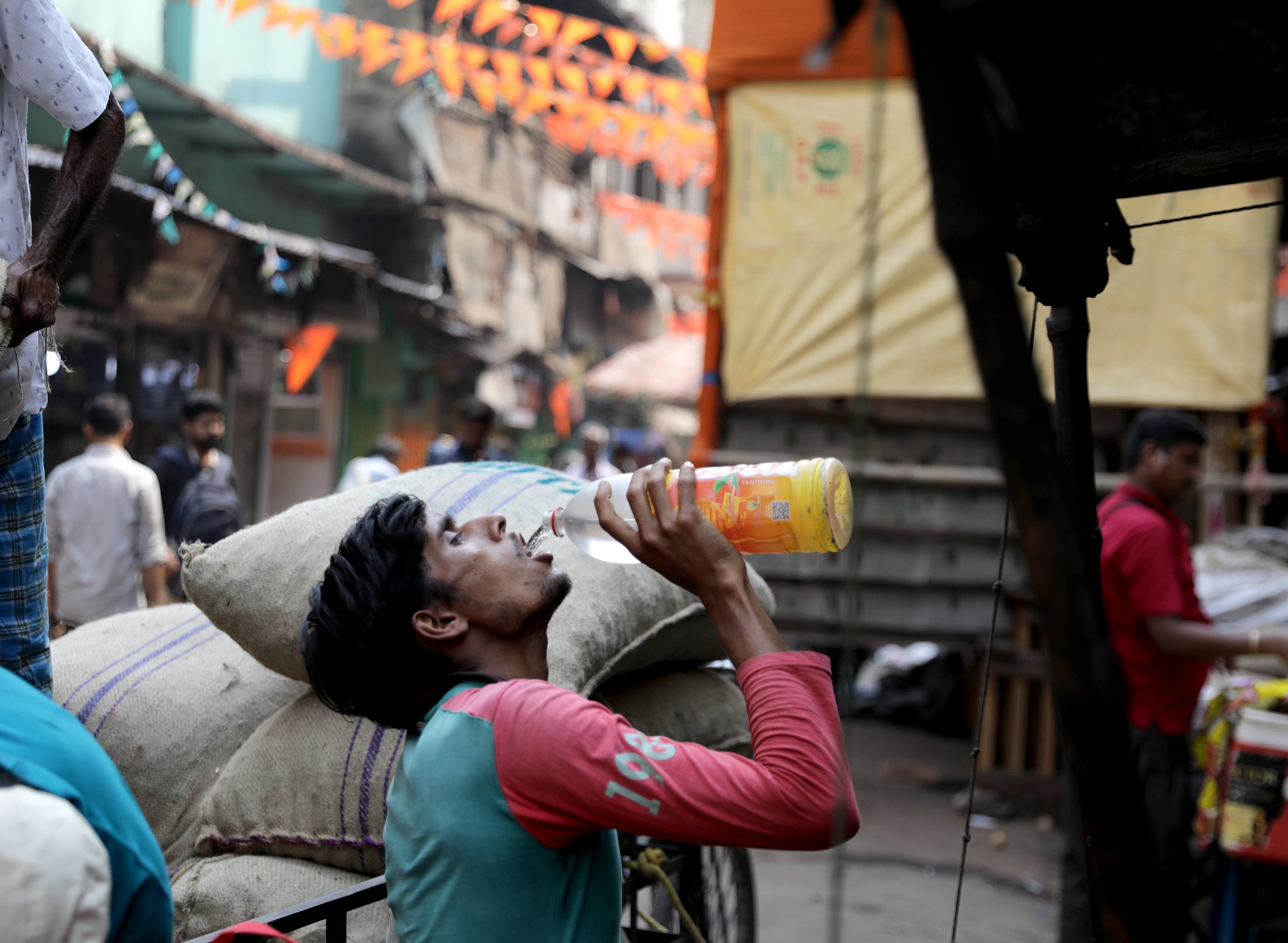Heatwave in India: TV host faints during live broadcast as swaths of country reel from sweltering temperatures
A ‘severe heatwave’ warning is in place in West Bengal as India witnesses soaring summer temperatures
Your support helps us to tell the story
From reproductive rights to climate change to Big Tech, The Independent is on the ground when the story is developing. Whether it's investigating the financials of Elon Musk's pro-Trump PAC or producing our latest documentary, 'The A Word', which shines a light on the American women fighting for reproductive rights, we know how important it is to parse out the facts from the messaging.
At such a critical moment in US history, we need reporters on the ground. Your donation allows us to keep sending journalists to speak to both sides of the story.
The Independent is trusted by Americans across the entire political spectrum. And unlike many other quality news outlets, we choose not to lock Americans out of our reporting and analysis with paywalls. We believe quality journalism should be available to everyone, paid for by those who can afford it.
Your support makes all the difference.A TV host in India fainted during a live television broadcast as swaths of the country reel from a sweltering heatwave.
Lopamudra Sinha, the anchor of state-run DD News in West Bengal, was reading a bulletin from a studio when she began feeling unwell and fell unconscious as cameras kept rolling.
Addressing the incident on her Facebook, Ms Sinha said she was feeling unwell before the broadcast but sat down with a bottle of water to keep herself hydrated during the telecast.
“During live news, my BP (blood pressure) dropped drastically, I fainted. I had been feeling sick for quite some time; I thought drinking some water would fix it,” she said in a video in Bengali.
However, she said she did not get the chance to drink water and eventually “blacked out”.
Ironically, Ms Sinha suffered a blackout while reading the part of the bulletin on heatwave after finishing the first two segments.
“I thought I could finish the remaining four news stories. I somehow completed two; number three was a story on the heatwave. While reading it, I was slowly getting sick. I thought I could finish and tried to hold myself together, but I could not,” she said in the video.
“During that story, I could no longer see. The teleprompter dimmed, and I blacked out.”

She stated in the video that the TV studio was fully air-conditioned but the AC was not working that day and it became heated with the studio lights on.
India’s federal weather agency has issued “severe heatwave” alerts for parts of India with temperatures soaring to 42-44C.
India witnessed the early onset of an intense heatwave in March and April, leading to a huge impact on agriculture production.
A heatwave alert has been issued for Odisha and West Bengal till 22 April with temperature peaking above 40C.
Mrutyunjay Mohapatra, director-general of the India Meteorological Department (IMD), earlier this month said that India is likely to experience more heatwave days than normal between April and June, hampering government efforts to bring down food inflation.
For the third consecutive year, a heatwave could potentially impact the production of wheat, rapeseed, and chickpeas, while simultaneously increasing power demand beyond supply levels during the summer season. India, the world’s second-largest wheat producer, stands particularly susceptible to these effects.
The intense weather conditions have forced the West Bengal government to announce an early summer holiday for government-run schools in the state starting on 22 April. The government has asked the district administration to arrange drinking water tankers in areas grappling with water scarcity.
The first death linked to heat stroke was reported in Odisha on Friday. Laxmikanta Sahu, 62, died from heatstroke on 15 April, news agency PTI reported, citing an official from the Special Relief Commissioner’s office.
These extreme temperatures globally have been partly attributed to the strong El-Nino phenomenon, a natural climatic condition that warms the central Pacific and changes global weather patterns.

Join our commenting forum
Join thought-provoking conversations, follow other Independent readers and see their replies
Comments